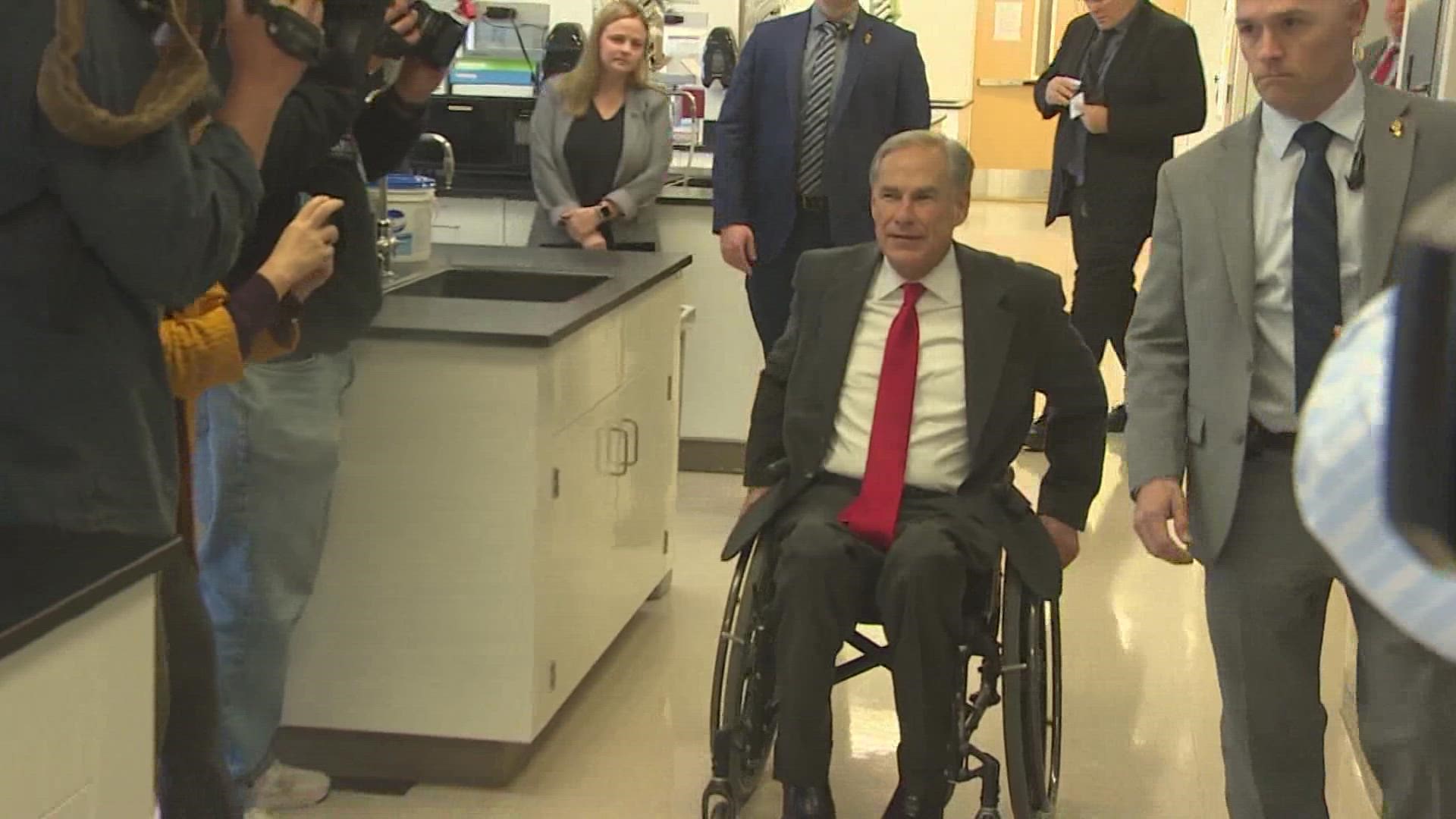HOUSTON — Texas Gov. Greg Abbott on Thursday toured the fentanyl vaccine lab at the University of Houston.
In November, the university announced the development of a potential "game changer" in the opioid epidemic with the creation of a fentanyl vaccine.
The tour started as Abbott met with researchers inside the lab where the vaccine was created.
“Today we celebrate one of those innovations. This happens to be a healthcare innovation that’s transformative," he said.
If approved, researchers hope the vaccine will stop people from overdosing on the drug.
“Quite literally, fentanyl is killing Texans," Gov. Abbott said.
Dr. Colin Haile, a developer of the vaccine, said it works by creating anti-fentanyl antibodies in the body. When the drug is consumed, the antibodies bind to the fentanyl and block its ability to enter the brain. It’s then pushed out of the body through the kidneys, according to Haile.
“Present treatments are not adequate, so we need a different strategy, a different way of addressing this problem," Haile said.
He says the best candidates for the vaccine are those who are susceptible to relapsing after recovering from drug abuse or those who may accidentally come in contact with the drug, like law enforcement.
“Just the Texas Department of Public Safety alone has seized enough fentanyl to kill every man, woman and child in the entire United States of America," Abbott said.
After their tour, Abbott, along with Haile, met with university leaders to hold a roundtable discussion on potential uses for the new vaccine and what the governor hopes to do in the next legislative session.
“I’m proposing new laws that will classify fentanyl as a poison or poisoning rather than an overdose, and one thing that will do is turn a fentanyl poisoning into a far more serious crime," Abbott said.
Haile said they’ve also created vaccines against methamphetamine and cocaine, but he believes the fentanyl vaccine has the best chance of making it to market first. Although, he said it may take at least three years before that happens.

